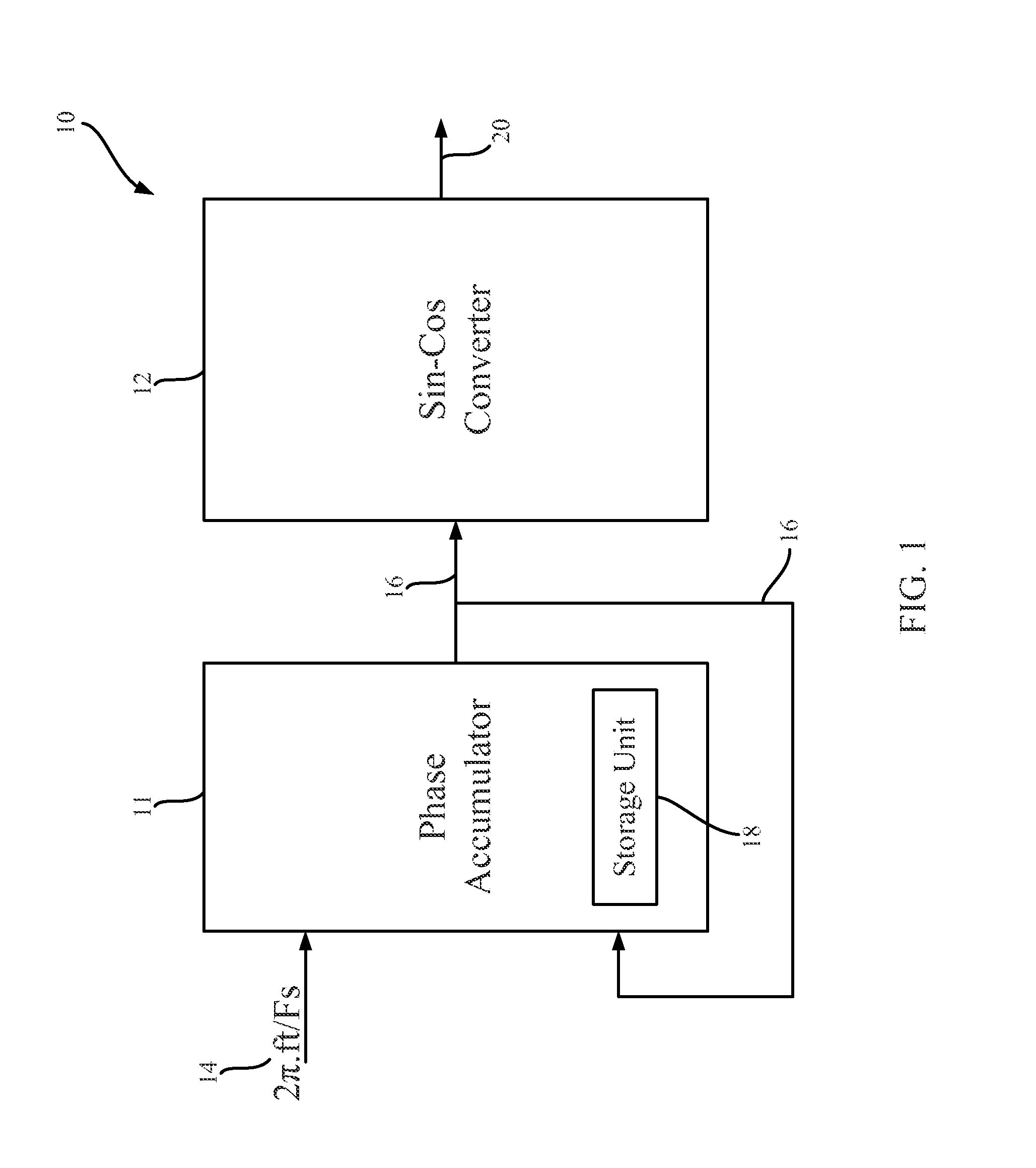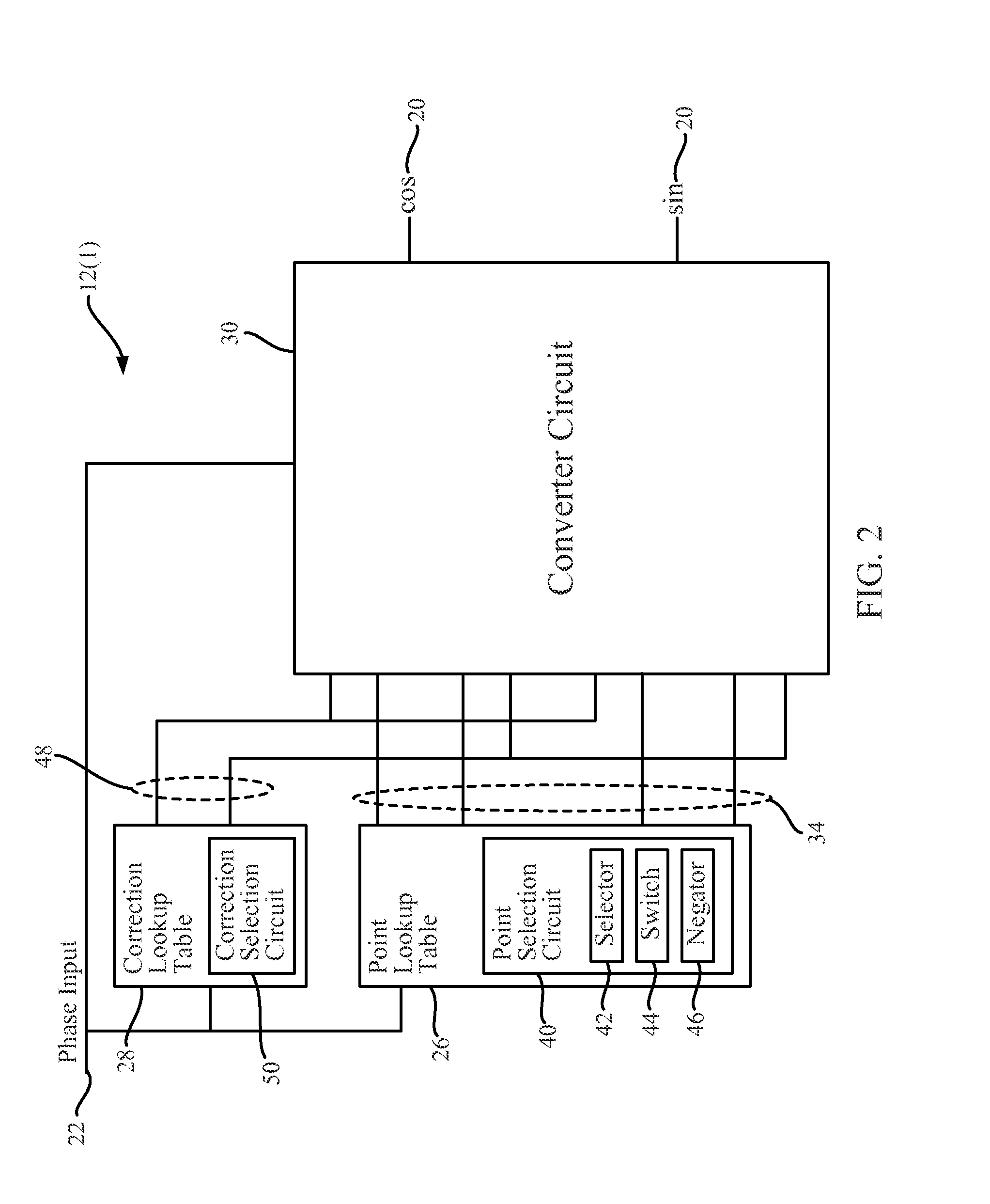High accuracy sin-cos wave and frequency generators, and related systems and methods
a frequency generator and high-accuracy technology, applied in oscillator generators, trigometric functions, instruments, etc., can solve the problems of high accuracy decay rate of recursive calculation stability, increase in hardware cost, and increase in complexity of calculations, so as to achieve high accuracy and low hardware cost. , the effect of high accuracy
- Summary
- Abstract
- Description
- Claims
- Application Information
AI Technical Summary
Benefits of technology
Problems solved by technology
Method used
Image
Examples
Embodiment Construction
[0020]With reference now to the drawing figures, several exemplary embodiments of the present disclosure are described. The word “exemplary” is used herein to mean “serving as an example, instance, or illustration.” Any embodiment described herein as “exemplary” is not necessarily to be construed as preferred or advantageous over other embodiments.
[0021]Embodiments disclosed in the detailed description include high accuracy sine and / or cosine (sin-cos) wave and frequency generators, and related systems and methods. In non-limiting embodiments disclosed herein, the sin-cos wave generators can provide highly accurate sin-cos values for sin-cos wave generation with low hardware cost and small lookup table requirements. The embodiments disclosed herein may include a circuit to conduct an arithmetic approximation of a sin-cos curve based on a phase input. The circuit may be in communication with a point lookup table and a correction lookup table. The tables may receive the phase input an...
PUM
 Login to View More
Login to View More Abstract
Description
Claims
Application Information
 Login to View More
Login to View More - R&D
- Intellectual Property
- Life Sciences
- Materials
- Tech Scout
- Unparalleled Data Quality
- Higher Quality Content
- 60% Fewer Hallucinations
Browse by: Latest US Patents, China's latest patents, Technical Efficacy Thesaurus, Application Domain, Technology Topic, Popular Technical Reports.
© 2025 PatSnap. All rights reserved.Legal|Privacy policy|Modern Slavery Act Transparency Statement|Sitemap|About US| Contact US: help@patsnap.com



